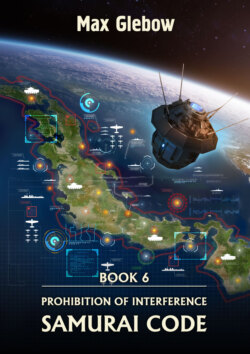Читать книгу Prohibition of Interference. Book 6. Samurai Code - Макс Алексеевич Глебов, Макс Глебов - Страница 5
Chapter 5
Оглавление“Comrade Stalin, the enemy used new tanks on the Leningrad front,” Marshal Zhukov decided to begin his report with the most alarming news. “The Germans managed to surprise us unpleasantly. These heavy machines didn't go forward. They took up positions on the slopes of the heights about a kilometer from our trenches and supported their lighter tanks and infantry. Neither 45-mm nor 57-mm ZIS-2 or T-34 tank guns could hit them from such a distance, but they would pierce the armor of our tanks without any problems. The enemy attack could only be stopped by massive use of assault aviation, but the Germans still broke through the first line of defense.”
“What else is known about these tanks?” Stalin looked hard at the Marshal.
“At the most approximate estimate, they weigh more than 50 tons. The thickness of the armor in the frontal part of the hull is hardly less than one hundred millimeters, otherwise the Germans would not behave so brazenly. The caliber of the gun is about 90 millimeters. Most likely it is an upgraded version of the 88mm anti-aircraft gun. The running performance is comparable to the Panzer IV, although their maneuverability is probably worse.”
“How many tanks were there?”
“Four tanks. I think that's just the beginning. Comrade Commander-in-Chief, the troops urgently need effective means to combat the enemy's new equipment. We expected the Germans to do something to counterbalance our KVs and T-34s, but we still couldn't assume that. Perhaps the 85mm anti-aircraft guns could handle their armor, but that is a last resort – they are always in short supply for anti-aircraft defense as it is.”
“Comrade Zhukov, brief Comrades Morozov and Ustinov with this information. We'll come back to this matter again tonight, but in the meantime, continue your report. I am interested in the preparations for the attack on Kiev.”
* * *
We moved farther and farther west. For all the questionable combat effectiveness of the Chinese riverboats, the help of Chiang Kai-shek's men came in handy. We were placed on the decks, and the wounded were finally able to rest from the constant jolting. In addition, they were immediately examined by an elderly Chinese man who informed us that he was a field surgeon. This doctor spoke Russian, with a monstrous accent, but at least he was understandable. After giving the necessary care to the most difficult patients, he took over for me.
